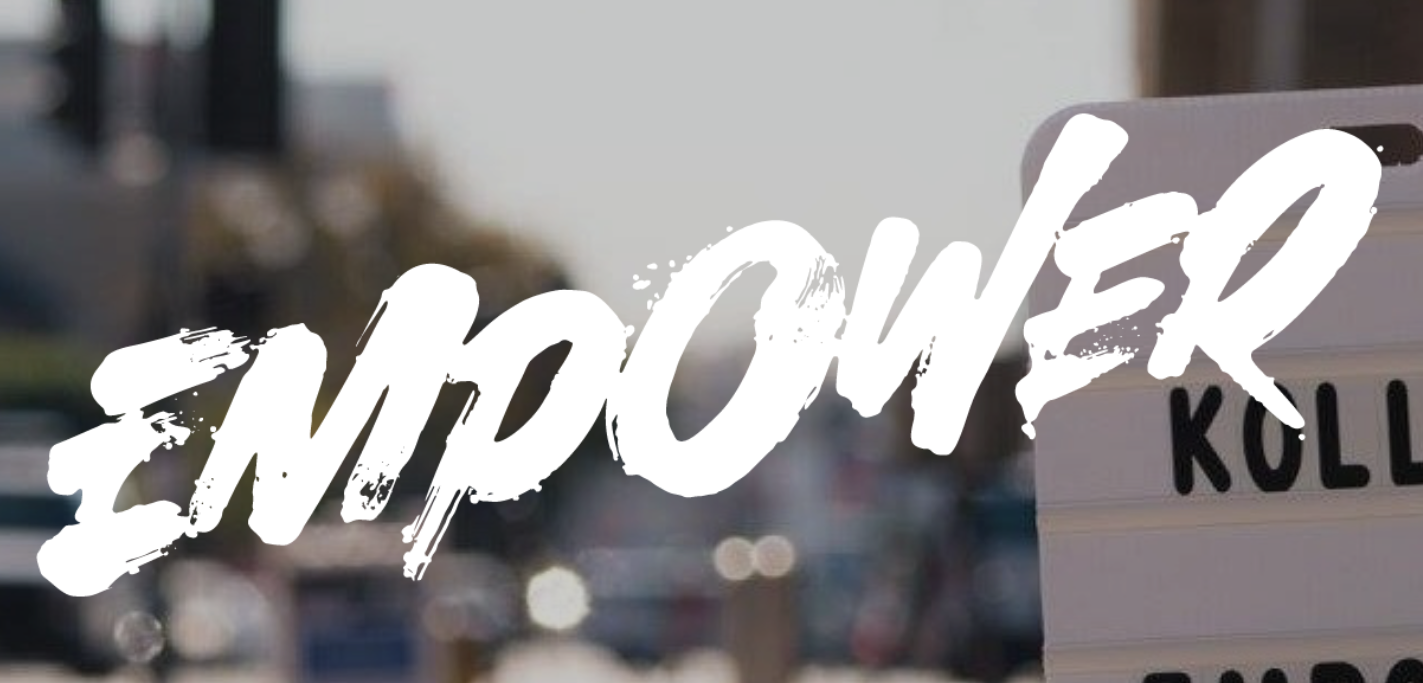AASHNA MALPANI WRITES– Kollaboration, a non-profit, hosted the EMPOWER conference last week. The organization held its fifth annual event on March 23 and 24 at the Japanese American National Museum in Los Angeles.
The two-day symposium aims at bringing people across all communities together to learn more about filmmaking, music creation, podcasting, screenwriting, and more. Unique in its structure, EMPOWER not only boasted of panels with professionals in the field but also allowed participants to sign-up for mentorship sessions and workshops with an array of leaders. These session covered in-depth discussions on “storytelling, improvisation, elevator pitches, and freelancing” to name a few.
Opening day kicked off with accomplished panelists from across industries interacting with large crowds, divulging their experience and sharing insider tips that helped them “make it.” Some names include Taz Ahmed (Podcast Host, Good Muslim Bad Muslim), Lulu Wang (Director, The Farewell), Frank Shyong (Columnist, LA Times), Dumbfoundead (Rapper), and Andrew Chau (Co-Founder, Boba Guys).


Panelists at EMPOWER: Taz Ahmad (left), Fawzia Misra (right)
HIGHLIGHTS
One of the most inspiring events of the forum was called Crushing the Myth (Storytelling Session). The roughly one-hour session invited panelists to speak about the concept of ‘model-minority,’ a stereotype that perceives the East-Asian demographic as achievers of a higher degree of socioeconomic success than the average population. The terminology first used by sociologist William Petersen in 1966, is considered to be severely detrimental–as most stereotypes are. It not only pushes minority communities in pre-decided boxes but pits them against other groups.
Turning this political clicheè in on its head, the panelists from an array of industries touched on their internal struggle with their Asian identity, overcoming inhibitions, and reconciling their conservative upbringing with current sexual desires.
Jaclyn Yangyuen, a recent graduate of UCLA and pop-singer, delivered a moving speech on the shame and stigma around the topic of sex in the Asian community, especially for women. Yangyuen delved deeper into the issue, even touching on taboos such as BDSM (bondage and submission), sexually transmitted diseases, and accidental pregnancies.
“If we are so ashamed of talking about sex, we won’t have access to resources to protect ourselves from things like STIs or unwanted pregnancies. I also talk about my involvement with the BDSM community, where I learned about a culture of clear and enthusiastic consent. That’s something as an Asian American community we can learn a lot from.”
Yangyuen went on to talk about how East-Asian women are perceived as docile and submissive, and are often fetishized and reduced to merely a sexual being. She says, “I had a hard time coming to terms with my submissive side (in BDSM) because there’s a stereotype of the Asian wife who’s very docile submissive and innocent.” An empowering confession follows her thought, “I fought that for a while because I didn’t want to conform to that, but then I realized that the whole point of why we are fighting for equality in the first place is so we can be whoever we want.”
Another panelist in the Crushing the Myth segment, Kevin Kreider, a model, and a life coach, shared his experience with microaggressions. His trajectory details how in his youth he chose to ignore his Asian identity, trying to be accepted by a white community as the ‘token Asian.’
When asked about his presentation, he says, “I spoke about how I ignored that community for such a long time, and I thought that would be better for my self-esteem. I thought being accepted as the token Asian would make me be loved more. Growing up I was surrounded by microaggressions, ‘you’re not really Asian, so don’t worry about it’ or ‘you’re a good looking for an Asian guy’ or ‘you’re actually white, so don’t worry.’ The reality was the opposite because I never was fully accepted in that (white) community.”
Kreider also spoke about the value of serving one’s community as the antidote to feeling insecure in your identity. He began volunteering his time at Asian organizations, interacting with more people who accepted him for who he was and immersed himself in service. “I started to develop a lot more self-love for myself instead of stripping away my identity as an Asian and that self-hatred started to disappear.”
The session, Evolution of Asian Masculinity, featured how Asian men specifically have had to deal with western emasculation and erasure, being portrayed as asexual and inferior.
Panelists spoke about personal experiences where they detail how during their school years, white women were the pinnacle, and when one of them was asked out by a white woman, he thought it was a joke.
They went on to talk about how “entertainment is made by whites to entertain whites.” A speaker spoke about how he had to create a platform on Youtube because he wanted to be an actor, but there were no opportunities in the mainstream media for him.
Other favorite segments included panels on Journalism, Podcasting, and Screenwriting. The summit is expected to return for its sixth run in 2020, continuing to bring people together from all sectors of society.
(The EMPOWER 2019 video is shot by Yi Ming Zhou and edited by Yi Ning Wong.)




Excellent!
EVERYONE need a great Elevator Speech!
Here’s a super Elevator Speech Template!
https://nosweatpublicspeaking.com/go/freeelevatorspeechtemplate/